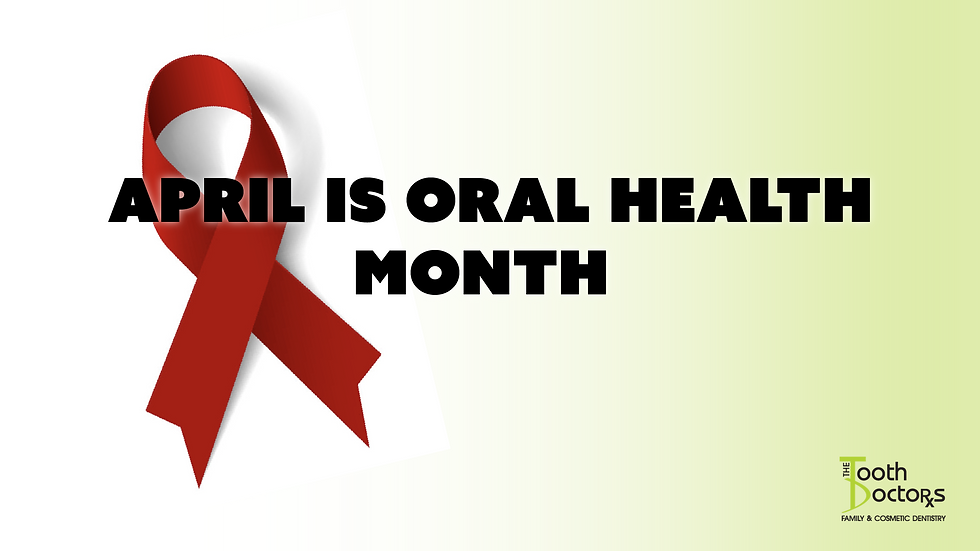Thumb Sucking
- The Tooth Doctors

- Mar 27, 2017
- 2 min read
by Dr. Masarat Saqib
Hello everyone, I’d like to share my thoughts on parafunctional habits I see regularly in the dental office. Parafunction is a term used to describe any abnormal behaviour or habits of the oral structures and the associated muscles. Habits that I commonly see in the dental office include: grinding, clenching, tongue thrusting, lip/fingernail biting, or thumb sucking. If these habits become excessive, it can have a negative impact on the development of the structures around the face, jaw and teeth.

In children, I often come across cases where the child is sucking his or her thumb on a regular basis. The prevalence in children has been shown in studies as high as 70% to 90% so chances are someone in your family is or was a thumbsucker . Children start sucking their thumb at a very early age as a natural reflex for comfort. According to the Canadian Dental Association,most children discontinue a sucking habit on their own, usually between the ages of two and three . Some children however, continue the habit well beyond into elementary school. Should this be worrisome? It is when the child is starting to have his or her permanent teeth erupt, which is about the age of 6.
Prolonged thumbsucking can result in shifting of the teeth leading to an open or cross bite to form, the roof of your mouth being altered or sensitive, tongue thrusting, lisp formation, and not to mention the germs from your thumb affecting your body. Similar conclusions can be made with a pacifier habit although effects may not be as pronounced.The severity of these consequences is likely determined by three factors: intensity, duration, and frequency. Prolong sucking may lead to a need for orthodontic treatment in the future.
Here are some helpful tips on how you can stop your child from sucking his or her thumb:
1) Eliminate sources of stress which could be the reason why your child sucks their thumbs.
2) Create distractions/diversions when your child does suck her thumb (i.e. toy or sing a song)
3) Place a Band-Aid or sock,over the thumb/hand
4) Positive reinforcement (i.e. provide a prize if stop sucking). Always be supportive and positive.
5) Teach your child the reasons why they can’t continue to suck their thumbs. Explain to them the long term effects of such a habit and what that might entail
If you suspect that your child’s thumb sucking might be affecting his or her oral health, please do not hesitate to call us and schedule a visit. We would be happy to assess the situation and provide you with options!
Warren, J.J, et al.(2000). Non-nutritive sucking behaviors in preschool children:
A longitudinal study. Pediatric Dentistry, 22(3), 187-191. Retrieved fromhttp://www.aapd.org/assets/1/25/Warren-22-03.pdf
Canadian Dental Association. (2017). Pacifiers and Thumb sucking. Retrieved from: http://www.cda-adc.ca/en/oral_health/cfyt/dental_care_children/pacifiers.asp



Comments